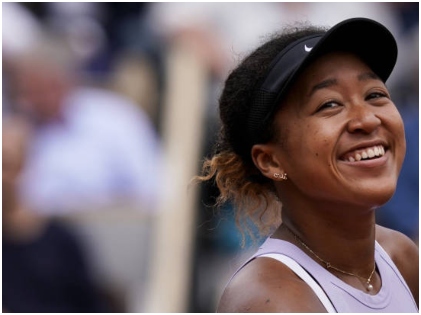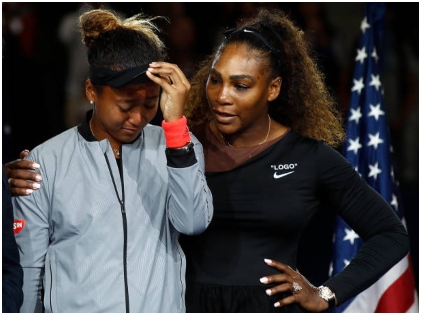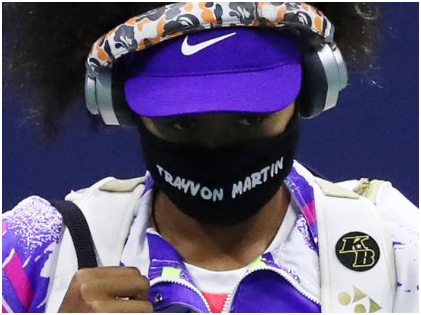 Things have not been rosy for the tennis player. With Naomi Osaka withdrawing from the French Open citing mental health issues, the world gave more importance to mental health issues. World no 2 withdrew from the high-profile tournament, saying that she has anxiety issues and is an introvert who has problems speaking with the media and expressing her predicament. While she has garnered support from different quarters of the world, including Serena Williams, she knew what she might be going through.
Things have not been rosy for the tennis player. With Naomi Osaka withdrawing from the French Open citing mental health issues, the world gave more importance to mental health issues. World no 2 withdrew from the high-profile tournament, saying that she has anxiety issues and is an introvert who has problems speaking with the media and expressing her predicament. While she has garnered support from different quarters of the world, including Serena Williams, she knew what she might be going through.
The Reaction of the French Open Organisers
 The reaction of the French Open organizers is a little unexpected as instead of understanding or accomodating her. They labeled her act as a phenomenal error. A one-on-one conversation between the two parties could have stopped things from getting worse. Instead, they could have made things better by finding a middle ground and talking about it.
The reaction of the French Open organizers is a little unexpected as instead of understanding or accomodating her. They labeled her act as a phenomenal error. A one-on-one conversation between the two parties could have stopped things from getting worse. Instead, they could have made things better by finding a middle ground and talking about it.
Naomi Osaka’s Forthright Declaration

Naomi Osaka, the number 2 tennis player globally, is the sport’s most prominent ambassador. She admitted to suffering from bouts of depression since she won the first Major at the 2018 U.S. Open, as she played against Serena Williams for the final.
Roland Garros was not one of her favorite surfaces, and hence she was experiencing a heightened sense of anxiety. She needed to protect herself and decided she would go for a media boycott. This was against the tournament rules.
Before making her second statement where she gave her reasons for quitting the tournament, the organizers warned her of graver consequences and requested her to change her stance to be unfair for the other players.
The Issue of Mental Health
Now, the post-match press conferences are mandatory. However, it isn’t big on boosting the morale of the losers. Osaka planned to bring this into focus and how heightened focus on the player who is already feeling bad about a loss can worsen the vulnerable player.
There’s not much awareness on mental health awareness like in the case of physical health. And that’s why Osaka wanted to explain how players feel when playing under a certain strain. Her desire to withdraw from the tournament was an act of self-care. She wanted to avoid the barrage of questions that came from the media. Understandably, most people could buckle under such kind of tremendous pressure.
If it were a physical injury, perhaps the way things would move on would be different. The player would have gotten help before taking on questions from the media.
Collective Conversation Leading to Many Changes
Osaka’s sister Mari Osaka and her coach Wim Fisette spoke about how the 23-year-old player was trying to change things, especially those that need attention. The relentless pursuit of media made her feel stifled, and it was a problem that was getting too overwhelming for her.
But change won’t happen overnight. Rather the collective conversations beginning today will start the ball rolling as seen in the past in tennis.
Support From All Quarters

Her withdrawal from a Grand Slam has been the talk of the tennis world. Mainstream news with scores of people beyond tennis offers support and condemns the organizers in the process.
The French Open incident does not call for keyboard activism, but it should positively change the tennis world.
Osaka Follows Simone Biles in This Regard
Osaka follows the star Olympic gymnast Simone Biles, who found herself in a similar situation in 2018. And she refused to return to USA Gymnastics’ training center at the Karolyi Ranch.
Because she and a team doctor mistreated several young athletes, this led to the complete shut down of the facility. There have been similar cases where about 500 Pac-12 Conference football players demanded the change of health and safety protocols at the height of the pandemic in the United States. Only then would they agree to play.
Julie Foudy, the former Women’s Sports Foundation, spoke in favor of Osaka. Foudy is a two-time Olympic champion and the ex-captain of the U.S. women’s national soccer team. She believes that Osaka’s decision brings a great shift in the thought process. This coerces the governing bodies to pay greater attention to help safeguard athletes’ mental health.
The way things are going, it won’t be long before there is a time when the player’s mental health will be just as important as their physical health.





